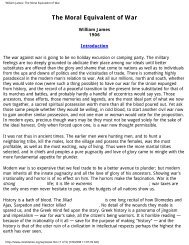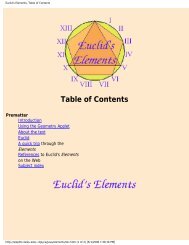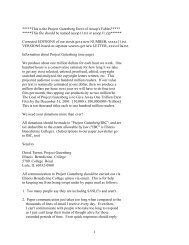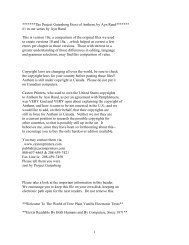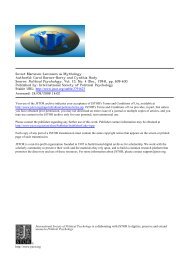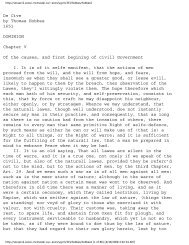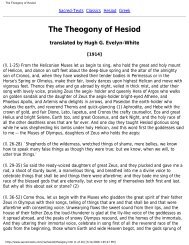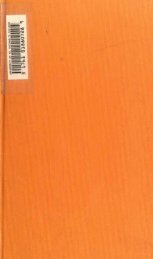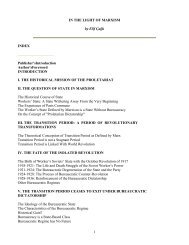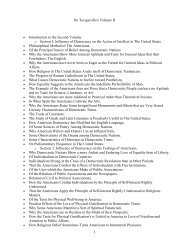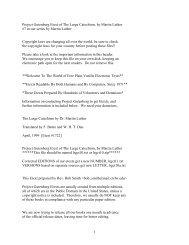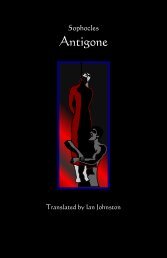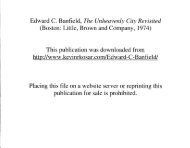Thomas Jefferson: A Manual of Parliamentary Practice
Thomas Jefferson: A Manual of Parliamentary Practice
Thomas Jefferson: A Manual of Parliamentary Practice
You also want an ePaper? Increase the reach of your titles
YUMPU automatically turns print PDFs into web optimized ePapers that Google loves.
<strong>Thomas</strong> <strong>Jefferson</strong>: A <strong>Manual</strong> <strong>of</strong> <strong>Parliamentary</strong> <strong>Practice</strong><br />
ON an amendment being moved, a member who has spoken to the main question may speak<br />
again to the amendment. Scob. 23.<br />
If an amendment be proposed, inconsistent with one already agreed to, it is a fit ground for its<br />
rejection by the House; but not within the competence <strong>of</strong> the Speaker to suppress as if it were<br />
against order. For were he permitted to draw questions <strong>of</strong> consistence within the vortex <strong>of</strong><br />
order, he might usurp a negative on important modifications, and suppress, instead <strong>of</strong><br />
subserving, the legislative will.<br />
Amendments may be made so as totally to alter the nature <strong>of</strong> the proposition; and it is a way<br />
<strong>of</strong> getting rid <strong>of</strong> a proposition, by making it bear a sense different from what was intended by<br />
the movers, so that they vote against it themselves. 2 Hats. 79, 4, 82, 84. A new bill may be<br />
ingrafted by way <strong>of</strong> amendment, on the words "Be it enacted, &c." 1 Grey 190, 192.<br />
If it be proposed to amend by leaving out certain words, it may be moved as an amendment<br />
to this amendment, to leave out a part <strong>of</strong> the words <strong>of</strong> the amendment, which is equivalent to<br />
leaving them in the bill. 2 Hats. 80, 9. The <strong>Parliamentary</strong> question is always, whether the<br />
words shall stand part <strong>of</strong> the bill<br />
When it is proposed to amend by inserting a paragraph, or part <strong>of</strong> one, the friends <strong>of</strong> the<br />
paragraph may make it as perfect as they can by amendments, before the question is put for<br />
inserting it. If it be received, it cannot be amended afterwards, in the same stage; because the<br />
House, has on a vote, agreed to it in that form. In like manner, if it is proposed to amend by<br />
striking out a paragraph, the friends <strong>of</strong> the paragraph are first to make it as perfect as they<br />
can by amendments, before the question is put for striking it out. If, on the question, it be<br />
retained, it cannot be amended afterwards: because a vote against striking out, is equivalent<br />
to a vote agreeing to it in that form.<br />
When it is moved to amend, by striking out certain words, and inserting others, the manner <strong>of</strong><br />
stating the question is, first to read the whole passage to be amended as it stands at present,<br />
then the words proposed to be struck out, next those to be inserted, and lastly, the whole<br />
passage as it will be when amended. And the question, if desired, is then to be divided, and<br />
put first on striking out. If carried, it is next on inserting the words proposed. If that be lost, it<br />
may be moved to insert others, 2 Hats. 80, 7.<br />
A motion is made to amend by striking out certain words, and inserting others in their place,<br />
which is negatived. Then it is moved to strike out the same words, and to insert others, <strong>of</strong> a<br />
tenor entirely different from those first proposed. It is negatived. Then it is moved to strike out<br />
the same words and insert nothing, which is agreed to. All this is admissible; because to strike<br />
out and insert A, is one proposition. To strike out and insert B, is a different proposition. And<br />
to strike out and insert nothing, is still different. And the rejection <strong>of</strong> one proposition does not<br />
preclude the <strong>of</strong>fering a different one. Nor would it change the case were the first motion<br />
http://www.constitution.org/tj/tj-mpp.htm (42 <strong>of</strong> 70) [4/14/2008 6:37:46 PM]



